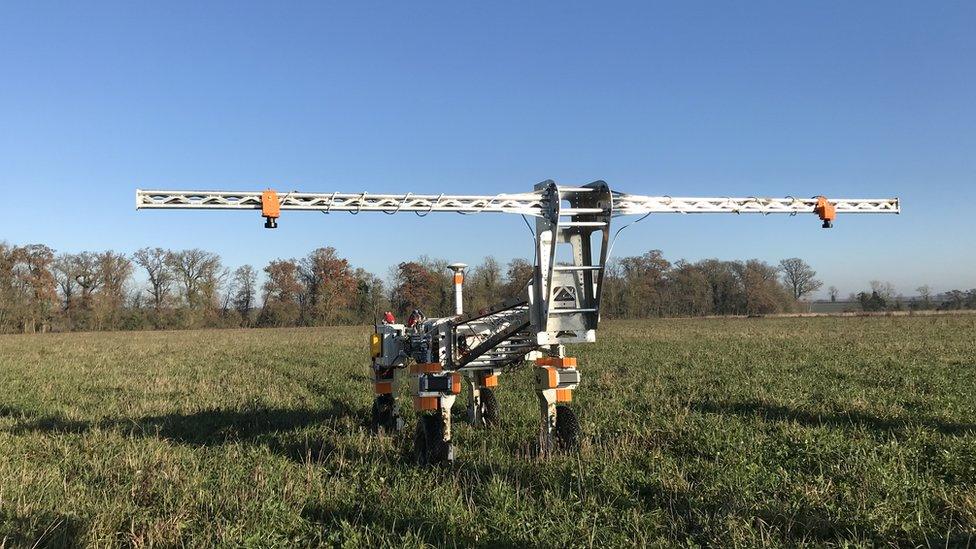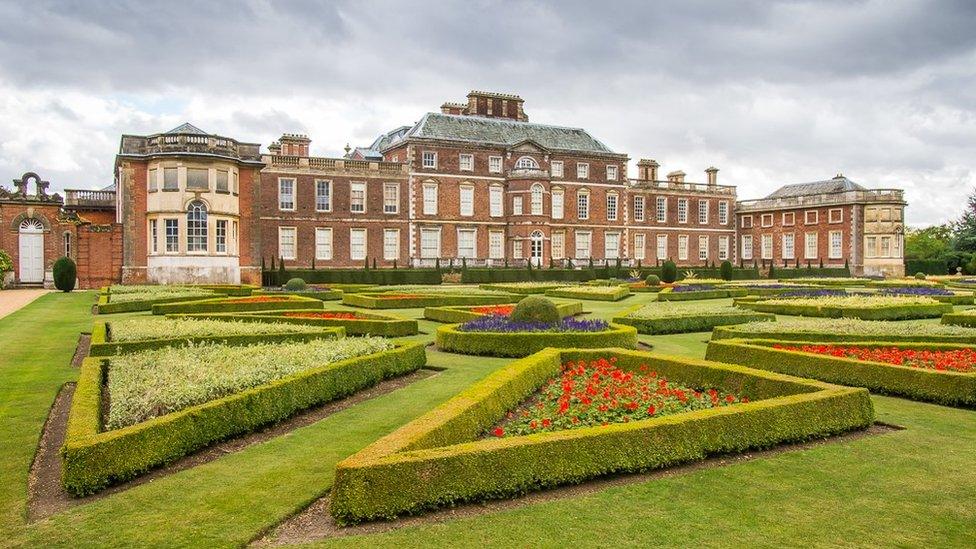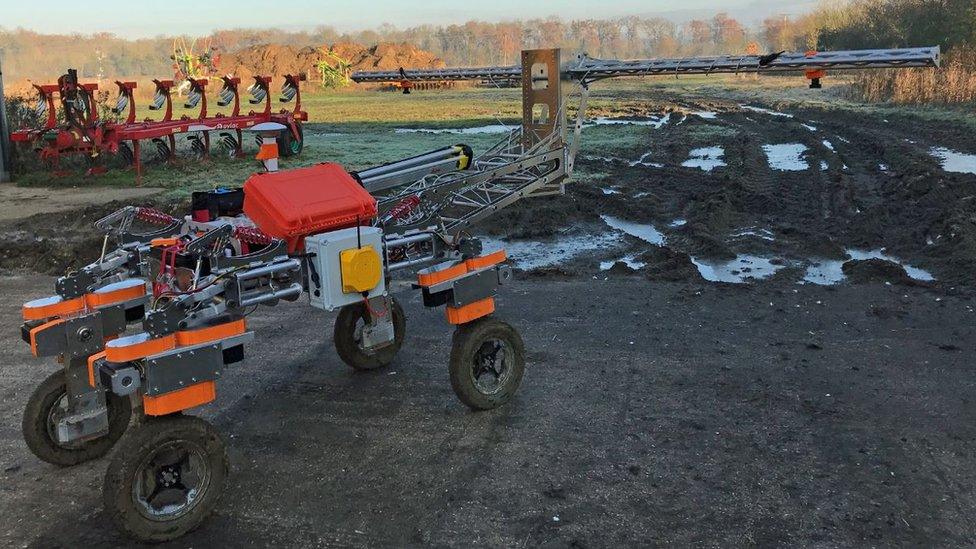National Trust Wimpole Estate trials weed-mapping robot
- Published

Tom has two downward-facing cameras, as well as sensors to detect obstacles
A robot called Tom that maps weeds with "absolute precision" is being trialled on a National Trust farm.
Wimpole Estate in Cambridgeshire will use the battery-powered prototype from Salisbury four times during the growing season.
It is fitted with downward-facing cameras which monitor the field, mapping every square centimetre.
Farm manager Callum Weir said Tom helped save on fuel and fertiliser, as well as benefiting the environment.
Wimpole Estate is a 1,500-acre (600 hectare) organic farm, growing wheat, rye, oats and barley.

At the heart of the Wimpole Hall estate is a Grade I-listed mansion
Tom is one of three robots being developed by the Hampshire-based Small Robot Company.
It gathers data which it downloads for analysis, and the fields are then hand-hoed to remove the weeds.
Dick, which the National Trust plans to trial next year, destroys weeds using an electrical charge, while Harry is used for precision planting.

The prototype weighs 150kg (23 stone) and compacts the soil far less than a seven-tonne (1,100 stone) tractor
Mr Weir said: "The beauty of the robot is that it gives me absolute precision.
"This robot can map every centimetre of the field and give me recommendations for different parts of the field."
It can map 50 acres (20 hectares) a day and has a four-hour battery life.
The National Trust has demonstrated it to some of its 1,700 tenant farmers.
Rob Macklin, the trust's head of farming and soils, said: "Technology needs to play a big part in solving many of the issues we currently face in farming, particularly improving soil health and carbon sequestration, reducing our reliance on fossil fuel power and fertilisers and avoiding the adverse impacts of synthetic chemicals on the environment."
The Small Robot Company hopes to make Tom and Dick available commercially in 2021.
- Published23 June 2017